

Project Momentum
Next Generation Knowledge Economy
Project Momentum
Next Generation Knowledge Economy
Chronicles of
BÖ§ZïK Inc.™ MSE/EPSE
Chronicles of
BÖ§ZïK Inc.™ MSE/EPSE


Project Momentum
Next Generation Knowledge Economy
Project Momentum
Next Generation Knowledge Economy
Chronicles of
BÖ§ZïK Inc.™ MSE/EPSE
Chronicles of
BÖ§ZïK Inc.™ MSE/EPSE
Newsflash! The Schedules for Physics II and
Pure Mathematics I & II are here!
CAPE - PHYSICS UNIT 1
Course Textbooks (Main)
CAPE - PHYSICS UNIT 2
Course Textbooks (Main)
CAPE - PHYSICS (UNITS 1 & 2)
Course Textbook for Rental (limited)
Reference Textbook (longterm use!)
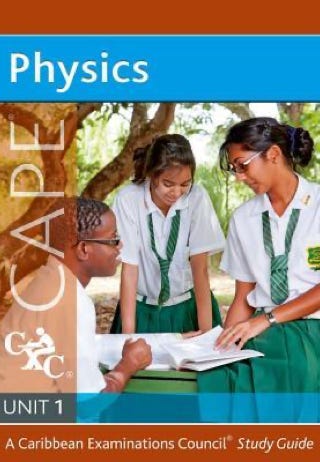
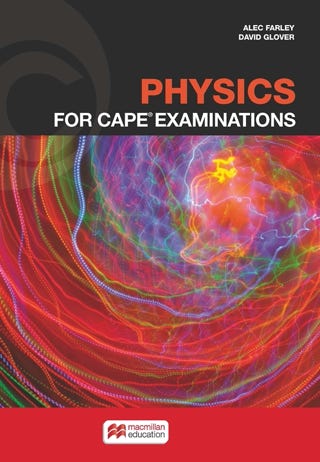
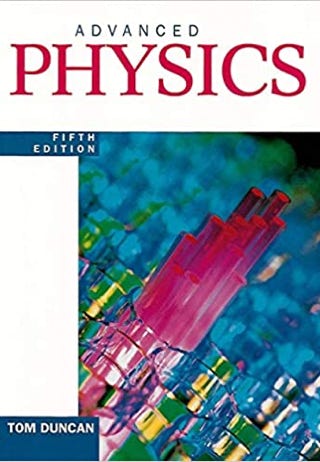
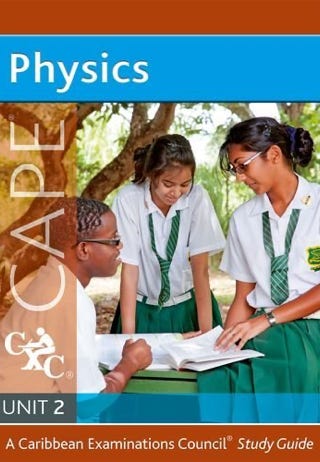
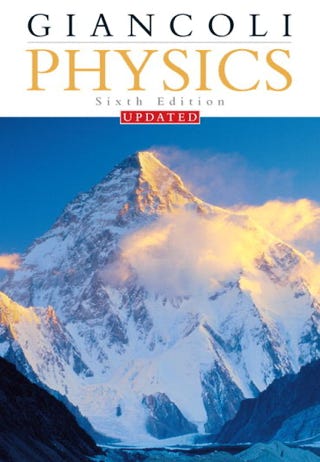
COURSE OVERVIEW (Ref: Syllabus Publication)
“Science plays a major role in the evolution of knowledge. It empowers us to use creative and independent approaches to problem-solving. It arouses our natural curiosity and enables us to meet diverse and ever expanding challenges. It enhances our ability to inquire, seek answers, research, and interpret data. These skills which lead to the construction of hypotheses, theories and laws that help us to explain natural phenomena and exercise control over our environment. Science is, thus, an integral component of a balanced education.
Physics is generally regarded as the most fundamental scientific discipline and forms the basis of many other sciences including Chemistry and Seismology, and can be applied to Biology and Medicine. The study of Physics is necessary to explain our physical environment. In fact, this is the role of the laws and theories of Physics that influence every aspect of our physical existence.
In particular, whatever conveniences and luxuries we enjoy as citizens of Caribbean nations can either directly or indirectly be traced to these fundamental physical laws, theories, and new technologies.
Physics plays a role in providing the tools for the sustainable development locally and globally, in particular, the development of environmentally friendly forms of power generation, monitoring, and modeling of our environment.”
———————————————————
Acknowledgments
Thanks to our council’s document authors for providing the framework above, which has been marginally modified.
Please peruse your syllabus for more information!———————————————————
COURSE SPAN
The syllabus is arranged into two (2) Units with each Unit consisting of three Modules.
Unit 1
Mechanics, Waves, Properties of Matter
Unit 2
Electricity and Magnetism, A.C. Theory and Electronics and Atomic and Nuclear Physics
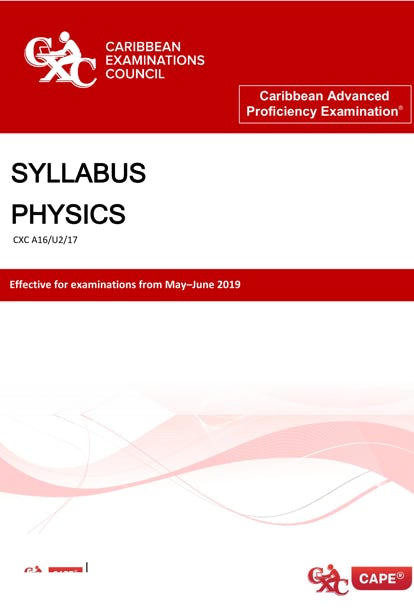
Innovation by G. David Boswell
under the auspices of BÖ§ZïK Inc.™ EPSE & MSE Syndicates
© 2022 & Beyond | All Publication Rights Reserved: Now and Beyond.